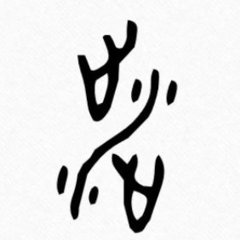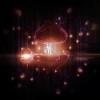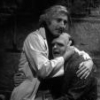Search the Community
Showing results for 'Dream'.
Found 7,590 results
-
I just go to bed, sometimes I wake up but I am not in a real world, I guess it's more like a lucid dream because there is no body left on the bed, and I can't fly or have control over the dream. All senses work just like this world, I can eat or shower or whatever. There have been times I've posted on the internet and read books or gone to work even, only to come to find out it never actually happened in real life. Quite maddening to say the least and scary as hell, when the dream starts to collapse around you. I am not even training at all right now and most of the time it just happens when I least expect it to.
-
I am always surprised how open, liberating yet normal meditation is. It is simple. Easy. Constantly reachable, on and off the cushion. It gives life a new dimension. One that is often very raw as one awakes from the dream that things are solid and once again realises the fragility of existence. Well enough of my faux "expertise". Just... you are right. Thx for sharing.
-

Hi😁 (This is intended to he posted on the welcome page as required)
Clouded_mirror posted a topic in Welcome
Hi all ( this is supposed to be posted on the welcome page and I am very sorry if it is not- This was the only link I could find) I'm new to forums and things of this nature so please excuse any "noob" mistakes So......, I would describe myself as extremely lost. I started studying taoism ravenously 2 years ago snd eventuslly ended up learning a few things from the universal healing dao, but I couldn't go to any lectures or but products due to age issues and whatnot. And so with a lack of resources and the fact that I was finding more and more holes in the system with every passing day I eventually gave up and left taoism behind. Or so i thought. In truth, tao/daoism has always lingered at the back of my mind and I have never truly escaped from the desire to learn more and practise. Trying to find answers on the internet however has proved to be difficult with so many loosing opinions, no real "facts" and a heck of alot of liars. So really it doesn't make much sense that I could end up at a forum as the whole point is to discuss and express opinions but I feel as if this is a place where i can form my own views In a less chsotic space and with the help of knowlegable people. As a heads up a lot of my questions will probably be to do with neidan (Yes I like to dream big) and sexual practices (please be mature) as they are the things I am most interested in currently and because they are the things I am able to find the least amount of information on (and a f*ck ton of contradictions) Ps.(can I swear here?🤨🤔 it's probably a stupid question but oh well....) -

General theory of relativity a pseudoscience?
voidisyinyang replied to wandelaar's topic in General Discussion
So you don't like me referencing a couple philosophy professors published in a peer-reviewed journal, stating that the square root of 2 was never proven? haha. They are not alone in that position. Bertrand Russell stating that "real numbers are a convenient fiction." I corresponded with math professor Luigi Borzacchini about this in 2001 - after I discovered his discussion of the music theory connection on a math forum. So I had this dream of a music-math equation and mailed it to Italy - after I scribbled it down upon waking. He responded that yes my math was good but I had no historical proof that it was used that way. Math professor Joe Mazur though encouraged me to dig deeper after I had mentioned David Fowler's work in this area. Sure enough Fowler admits he thinks music theory would provide the missing secret of how continued proportions of numbers were converted to geometric magnitudes. And Professor Borzacchini agrees with Russell that actually the "one to one correspondence" between geometry and number has never been proven - and so the "continuum" that people just accept in high school math is actually also "not proven" as Professor Borzacchini explains. Also he states that this secret music theory origin of Western symmetric math is a "secret of the sect" that got covered up in a way that is "really astonishing" and "shocking." He calls this secret music origin of Western math a "deep pre-established disharmony" that is the "guiding evolutive principle" of Western science! So he's not alone in this - I discovered, after my master's thesis was done on music theory and philosophy of science, I then discovered this Actual Matrix Plan based on the "music logarithmic spiral." And that term was coined by Esther Watson Tipple, the daughter of one of the inventors of the telephone. And then Esther Watson Tipple kept researching this issue - and she discovered the secret of noncommutative phase logic of music theory. She sent this secret to Einstein in a letter. Because Einstein considered the "music logarithmic spiral" philosophy to be the best example of a unified field theory to date. Esther Watson Tipple writes to Einstein on Pythagorean harmonics and Cosmic Nature Dear Dr. Einstein So it's been proven that Newton actually derived his theory of gravity directly from what he thought was Pythagorean harmonics as the inverse square law. But in fact it was not real Pythagorean harmonics, rather it was the wrong math from Archytas and Plato. So then Einstein just picked up on the error of Newton and extended it to its logical conclusion. Guide to the Oliver Reiser Papers, 1930-1974 UA.90.F10 | Digital Pitt https://digital.library.pitt.edu/islandora/object/pitt:UA-PPiU-ua90f10/viewer His other notable correspondents included Albert Einstein, Arthur C. Clarke, Isaac ... Davies, Blodwen; Reiser, Oliver Leslie, 1895-1974; Tipple, Esther Watson, ... https://www.nytimes.com/1974/06/07/archives/oliver-l-reiser-78-philosopher-dead.html Dr. Reiser's scholarship in the philosophy of religion and in, metaphysical and valuational aspects of science were acknowledged internationally. His books include “The Integration of Human. Knowledge” (1958) and “Cosmic Humanism” (1966). Of another book, “World Philosophy: A Search for Synthesis” (1948), Albert Einstein said: -
Hello all, I used to post here regularly, back in 2010-11. I'm happy to see so many familiar cool bums still around, and wanted to say hello. I left here in order to make time to create a science-of-consciousness documentary, collaborating with my neuropsych prof dad. I've interviewed nearly 50 top philosophers and neuroscientists in the field, and I've even published my own peer-reviewed cognitive science paper, an anatomical theory of consciousness. All of that is wonderful, but I'm far from done with my doc. I'm turning 50 in a few weeks, and am happy to report that I'm still break-dancing weekly, as well as my all my other dance events. My life-long bad back is pretty much completely healed, and I'm in my best physical health of my adult life. Those are the headline good news. But it's been more complex, as well. I've had my most satisfying romance during this time, but also my most heart-breaking loneliness, when it didn't work out. I'm happy with how much I've learned about brain function, but I still haven't learned how to get most people in the consciousness field (or the press) to read my theory paper. I think I've embraced all of my life, including the painful feelings, more than ever before, but that doesn't mean it's delivered me to some utopian place, where I'm always joyful, no matter the circumstances. My job and life are good, but I also struggle with the dissatisfaction of not yet accomplishing my dream (the doc). In other words, I'm still on my path, not quite the path that I imagined back in my Bum days, but still searching, still exploring. There's a lot more I can say about the last 7 years, and my theory of consciousness, but I wanted to keep this OP short, say hello, and say more only if people are curious. To those I knew, like Steve F., Marblehead, thelerner, Manitou/Barb, Kate/Birch, Scott/Blasto, Stigweard, Dawei, Apech, 3bob, Everything, et al, I'd love to hear what you've been up to. Much love.
- 17 replies
-
- 11
-

-

Throwing Out The Subconscious or Unconscious Mind
Nungali replied to DreamBliss's topic in General Discussion
Do I even know what I am defining ? You just ignored all the posts that were written and come up with that ? The better question seems' do you even know what you are reading' ? You just seem to ignore what has already been written and explained at times. It is like you dont want to see it, so you pretend it isnt there. How many times do I have to re outline my experience about it ? How many times do I have to say I live in a world where these type of new age thoughts are prevalent, that I have seen them do damage and cause disruption to the good and great things people can get together. I have lived on an alternative community for near 30 years, I have put on many 'New Age' alternative festivals. There were all sorts of workshops and things there including LoA. I was a tarot reader at an alternative market for 10 years . I watched a good friend die from breast cancer while she used her power of positive thought to heal it, and listened to a whole range of 'spiritual' new age 'healers' and teachers fill her innocent and persuadable head with New age rubbish. I watched another girl die of cancer while her parents admonished her for bringing it on herself by having the wrong 'mental attitude' - it was horrible! I have been in a 4 year supreme court case where the 'spiritual new age founders' of the community I lived on bore witness against their own community that did all the work and realised what they tried to visualise only ... they lost. they appealed with utter similar mental bullshit, they lost again. Now the remnant wackos that practice this BS that are still there are set for a round of local court (against me as a company director), because they believe in 'manifestation' but wont pay the rent the signed a contract to for a whole lot of stupid illogical cosmic reasons that are not going to pay the rates or electricity. They are fighting against the very people that are creating structure and order in able for them to try and live their community dream ... the judge will bring them back to earth (or at least bring down their bank balances! ) Also I have over 30 years experience in studying such things ... the occult and mysticism and magic, and had to pass through a series of examinations and grades to be able to prove I knew my stuff ... I worked for that group as an inspector and national secretary and an assistant to that groups international board. of directors for several years. I rushed over to the school next door once as there was a bushfire in the school grounds, when I got there, high flames were racing through the long uncut grass, up the hill, towards the kindergarten, closer to the kindergarten, little kids were running in that high above their heads grass that the fire was heading towards. I found their ,new age. teacher sitting in lotus on the grass 'meditating' a 'safe field' around the children. I abused he, woke her up, forced her to take the children to the safety point, zoomed home and came back with some people, our tractor and slasher to cut a fire break and our fire-fighting equipment and saved the school from fire and the children from injury. 6 months later, the dry grass is again overhead height and they are still meditating for the children's safety I told their parents and ... well, they pretty much had the same attitude about me as dream bliss seems to ... I was wrecking their pretty perceptions about things. And you want to know my experience ... and you assume my outlook is because I have something stuck up my rectum ? ? ? And you ! What is your extensive experience with it ? But no, you will just poke your tongue out, call me a know it all, but then question if I have ever had any experience with it? This too is a typical approach of these types of New Age 'philosophers'. And people wonder why I have scorn for them ! Been there done that already explained. That is a nice safe and secure thought for you isnt it ? Ha! I left home long ago, I live fulfilling my life in joy and celbration, you should see what I have managed to manifest ! Everything I have needed ... but not everything I have ever greeded. And I did it magically ... but by understanding 'practical' magic. As the crown was in the last disastrous stages of obviously loosing the Supreme Cort case against us, the prosecutor blurted out in unprofessional exasperation " But your honour, these people are outside the system, they have a a large riverfront property surrounded by pristine rainforest, they live in houses they built themselves, they dont even have a mortgage or debts to pay off and they live on paying $30 a week and putting on hippy festivals." The judge replied; "Yes, they have been rather clever haven't they ... but they have not broken any laws ." Also I can mention the continuous and numerous events throughout the court case where it magically and strangely went our way , even straight solicitors commented on that, they would say "I have never seen anything like this! How do you do it, They throw you in the river and you manage to stumble and bounce along every stepping stone and land on the opposite bank on a silk pillow with a cocktail in your hand " Yes; it was 'magick' ... but it wasnt some type of 'Think magick ' and wait for 'something ' to come about. It was ;think magic, plus, plus, plus, : study, legal system, logistics research, visualisation, putting things into practice, divination (using strategy from the 'Art of War', devotions and offerings to Maat, etc. etc. Thoe that wanted to visualise and wait for it to happen would be evicted by now if I had not punched my way through their BS and DID something about it ! Now they are about to go through it again in the local court .... it wont be a case of sticks up rectums , it will be a case of sticks applied firmly across buttocks (or bank accounts ) No experience eh! Actually, its you that dont have a clue about me ..... but keep thinking I dont know what I am talking about, if that helps your emotional security ... but remember , it is you that actually wants to change your physical situation. One day you might drag yourself out of that limbo and instead of only visualising what you want, actually go out there and try to do your part about it as well. I already am, but you think I am not and ignorant of it and your 'lessons' will lead me to it What! You see some mythological resurrection as a sign of realising oneness. Oh dear ! good luck then And also it was before ... when you ran off and were finished here. The above paragraph seems to be your default statment when things get a little 'hot in the kitchen'. Off you go then. At least you will have all the useful knowledge that people posted in here when you finally realise there might be more to this LoA attraction thingo than you and the other 'visualisers' might imagine.- 351 replies
-
- 1
-

-
- mind
- subconscious
-
(and 2 more)
Tagged with:
-
I can tell my dreams from reality now, when I dream I can do anything. When I was a boy, I could not, but I had a series of nightmares that repeated for years, I then found myself knowing I was dreaming because I had been there before, and then I began to be able to change the dream. In reality I cannot fly or travel a thousand miles in an instant, yet in dreams these things are easy and natural. I know of the illusion of reality, but it is not the same as the illusion of dream for me. The dream is like an illusion in an illusion, reality is like an illusion. My breakthroughs have been interesting. I recall when I learned that I had been seeing auras my whole life but did not know I was seeing them. I realized that the extraordinary is the ordinary. I recall having every prayer I ever made in earnest need or sincerity being answered, often immediately. I realize that the power is not my own, but I am free to use it as needed, when needed, if I but ask. I recall realizing that I cannot know, and that conviction of knowledge was my greatest delusion. When I let go of that I had the clarity to see what I did know, it made me feel at peace in a way I cannot possibly describe. It was at once the acceptance of both the limitations of perception and the limitless nature of being itself.
-
Love isn't the most powerful force in the universe and it's not the fundamental nature of your mind. This is just ignorance handed down from one generation to the next. But love is the most pleasurable experience that - as a human- you can have. And it's cultivated in many spiritual paths because it has a profound psychological effect. When people say that they cultivate the central channel, they basically visualize rainbows, unicorns and shit running along the spine, in the spine, in front of the spine, etc... When a tactile sensation kicks in, they stick to that and they proceed from there. This is basically what you do in neigong, qigong, etc. You cultivate tactile sensations and dream of becoming immortal, or at least more healthy. In cultivating the heart field aka the loving heart, the tactile approach could - at most- be a support for the first meditation session because the bulk of the work is psychological and it's done in the realm of emotions. For example, you may visualize someone you love until the emotion appears in your consciousness and you proceed from there (Guru yoga). Now that you know what it is, it's much easier to understand why Damo Mitchel made such a distinction.
-
I know its also just a story to me. And a dream. But I do see giants in nature. Elephants and Whales. Oh and gorillas are my favorite
-
To my mind the purpose of this thread is about the potential trap of ideas, along with the thoughts expressed in Dustybeijing's final paragraph. However I'm posting the full version of Moellers commentary for those who are interested in his reasoning. But, like I said in my previous post "by trying to fix any interpretation as definitive we risk losing the essence." THE FISHNET ALLEGORY—OR: HOW TO FORGET THINKING There is another famous allegory in the Zhuangzi that has been interpreted in a rather Western manner on the basis of its standard English translation. This story can also be understood quite differently if one looks at it from a "classical" Daoist perspective. Here is, first of all, the fishnet allegory of the Zhuangzi in Burton Watson's "standard" translation: The fish trap exists because of the fish; once you've gotten the fish, you can forget the trap. The rabbit snare exists because of the rabbit; once you've gotten the rabbit, you can forget the snare. Words exist because of meaning; once you've gotten the meaning, you can forget the words. Where can I find a man who has forgotten words so I can have a word with him?" At first sight, this allegory seems to be easy to understand. Just as one uses certain tools for fishing and hunting in order to get what is desired but hard to catch, so too does human communication makes use of words in order to catch certain difficult ideas or meanings. And just as one no longer cares about the hunting tool once they have performed their job, one also no longer cares about linguistic tools once they conveyed a certain meaning or sense. Or in other words, with respect to the object and not to the tool: What matters is getting it and having it in one's hands. Just as what matters in fishing and hunting is getting the fish and the game, what matters with words is getting the idea or the meaning. This does not sound terribly unfamiliar to Western philosophical ears, and today the fishnet allegory is usually interpreted in just this manner. It is said that what is essential for Daoism is the deeper meaning behind the texts or the words of the masters. Just as one may forget the fish trap once the fish is caught, one may also forget the Daoist texts and words once one has understood their true message. In respect to language, the words are consequently unimportant, for all that really counts are the "ideas." Expressed in formal terminology, the Daoist teaching would accordingly be: signifiers are arbitrary and negligible, all that really matters is the signified. Such a reading of the fishnet allegory is similar to Giles's rendering of the butterfly dream story in that it strongly parallels "classical" Old-European philosophy. The concept that words are expressions of mental contents, which are representations of facts, can be traced back to at least Aristotle's De Interpretatione. In order to understand facts, one must accordingly go beyond words to grasp the ideas that stand for the facts. Once one leaves words behind and arrives at the thoughts, one will comprehend the truth. In order to arrive at truth one has to arrive at ideas. Readings of the fishnet allegory that focus on the "getting" of true ideas can be found not only in modern Western studies of Daoist thought, but also within the Chinese tradition. One example is Wang Bi, the above mentioned somewhat "metaphysical" commentator on the Daodejing.I believe, however, that a close look at the text of the fishnet allegory, at Guo Xiang's commentary to it, and at the Zhuangzi and other ancient Daoist texts reveals that early Daoists wanted to say something very different with this parable, for the standard translation and interpretation miss a most decisive pun. The decisive pun in the fishnet allegory is "hidden" in the two Chinese characters that in Watson's translation have been rendered as "[ once you've] gotten the meaning." These two characters are in Chinese de yi, which literally means "to get (de) the meaning." The character for "meaning" can also be translated as "idea," "intention," "desire," or "wish." Thus it can both designate an unspecific mental content (as in "meaning" or "idea") as well as, more specifically, the "wish" or "desire" one has in mind. In the phrase de yi, the word yi is more often understood in the second scence of "desire" or "wish," so that the expression usually means (as in Mathews's Chinese-English Dictionary) "to get one's desires." In this sense it often just means "to be satisfied" (as in the phrase de yi de hen, ‘exceedingly well satisfied", see Mathews's Chinese English Dictionary'`). It is in this very sense that the phrase is used - with a slight grammatical variation - in its only other occurrence in the Zhuangzi. One has to have this ambiguity in mind—that the phrase de yi literally means "to get the meaning" but is usually used in the sense of "to get one's desires" or simply "to be satisfied"—in order to fully understand the point of the fishnet allegory. The philosophical point of the fishnet allegory is, I firmly believe, not at all merely that one is supposed to "forget words" in order to grasp the true meaning or idea of the Dao—as the standard "Aristotelian" interpretation maintains. It is rather, that to "get the meaning" or "idea" of the Dao means "to be satisfied"—and that this satisfaction consists in having nothing in one's mind, in having no specific "meanings" or "ideas." Thus, I will argue, that "to get the meaning" (de yi) in a Daoist sense means, paradoxically, to be perfectly content (de yi) by no longer having any mental contents.' The phrase de yi is used in the fishnet allegory with this double meaning. The allegory is then not about how to get ideas, but about how to get rid of them. The Zhuangzi discusses the problem of "ideas" or meanings quite frequently. The character yi is used more than fifty times in the book, and it is often used in semantic connection with words for "language" or "speech" (yan). Practically every time that the notion of yi ("meaning," "idea") appears in the sense of "the meaning of words" it has a negative connotation attached to it. Nowhere does the Zhuangzi say that it is good or desirable for the Daoist sage to have "ideas," but it often says the exact opposite: that the sage should neither be stuck with words nor with ideas or meanings. So why should the fishnet allegory—and only the fishnet allegory—contradict the general Daoist tenor? A typical statement on words and meanings or ideas (yi) in the Zhuangzi goes as follows (with Guo Xiang's commentary in italics): What can be discussed with words is the coarseness of things. What can be reached with ideas is the refinement of things. That which cannot be discussed with words and that which cannot be investigated and reached with ideas neither belongs to the coarse nor to the refined. Only non presence [wu]! What about the presence [you] of words and ideas? Well, words and ideas are present [you]. And that which words and ideas are about is nonpresence. So one looks for it in the realm of words and ideas, and then one enters the dominion of no-words and no-ideas and has finally arrived. That which is neither coarse nor refined is the Dao. It is, as the Zhuangzi and Guo Xiang make perfectly clear, to be found neither in words, nor "meanings," nor "ideas" (yi). In order to arrive at the Dao, one has to go beyond both words and ideas. Accordingly, the Daoist master Tian Z1 Fang describes the qualities of his teacher in the Zhuangzi as follows: "He made people's ideas disappear." Ideas, as another passage in the Zhuangzi explains, are among the "six evils" that "confound the heart. The Daoist sage, or the zhen ren ("true man"), attempts to discard all the intentions and ideas in his or her mind. The Zhuangzi says: "Even more than a sheep he/she casts off ideas." The Zhuangzi is full of such declarations of the limitations of words and ideas or meanings. Why should the fishnet allegory then declare that the Daoist sage aims at "getting the meaning"? Other early texts also show that Daoist philosophy was not simply about "getting ideas." The expression "No ideas!" (wu yi) appears as a philosophical motto. The Liezi says: "No ideas!—Then the heart will be one." Given this philological and philosophical evidence, what does the fishnet allegory really say? How has it been understood by Daoist readers? One has to go back to the text itself and to Guo Xiang's commentary to answer this question. Guo Xiang comments on the fishnet allegory with only one sentence. He writes: When it comes to two sages having no ideas [wu yi], they will both have nothing to talk about. It is clear that for Guo Xiang the fishnet allegory does not say that the Daoist sage "gets the meaning" (de yi), but rather that he/she will be left with "no ideas"—this is just what he literally says. Guo Xiang obviously read the fishnet allegory in this way: Once a Daoist sage no longer has ideas, then he/she will also have attained the "desired" speechlessness. Thus, when two Daoist sages with empty minds meet, they can hardly start a philosophical conversation. There would simply be nothing to say! 'They could not discuss any "true meanings"! According to the "Aristotelian" interpretation of the fishnet allegory, the true philosopher will have to go beyond words in order to get the meaning." According to Guo Xiang’s Daoist reading of the fishnet allegory, the sage has to discard all ideas in order to realize Daoist silence. With the help of Guo Xiang's commentary a Daoist reading of the fishnet allegory can be reconstructed. One can now understand the final sentence of the text in a somewhat less cryptic manner. In the light of Guo Xiang's interpretation the last sentence of the original can be simply read as: "How could I talk to somebody who has forgotten words?" Such a reading is philologically as plausible as Watson's, but is philosophically in accord with Guo Xiang's commentary. How and why would a Daoist sage, if he/she should meet another one, start arguing? Read in a Daoist way, the fishnet allegory is not about what sages "get," but rather about what they lose. This is perfectly in accord with the Daodejing, which repeatedly states not only that that the Dao and the sage are silent, but also that their strategy is one of gain by loss (see for instance Daodejing, chapter 48). *In the light of the basic Daoist teaching of "no words, no ideas," one can now reread the three parallel statements of the fishnet allegory. The first two of these are perfectly parallel images, both semantically and linguistically. The third sentence though, as is often the case with jokes or humoristic tales, contains a pun and breaks, in an ironic way, with the pattern the reader was made familiar with in the two preceding lines. The last line is, as pointed out above, ambiguous, and it is ambiguous because of the double meaning of the phrase de yi. Let us read the fishnet allegory again from the beginning. Somewhat differently from Watson's translation, the first two sentences have as their main syntactic and semantic topics not fish and rabbits and the question of how to catch them, but rather fish traps and rabbit snares and the issue of how one can no longer be concerned with them. The text explicitly puts the snare and the trap in the first section, not the fish and the rabbit. So let us read the text in accord with its actual structure. The first sentences say in a more literal translation: As to al fish trap: [it is] the means to get hold of fish. [One] gets the fish, and then [one can] forget the fish trap. As to a rabbit snare: [it is] the means to get hold of rabbits. [One] gets the rabbit, and then [one can] forget the rabbit snare. The text obviously focuses more on traps and snares than on fish and rabbits. It tells us that they are instruments for getting something, and that they can only be of no more concern once they have helped us to get what they are made to get. So the text is first of all about instruments and the conditions under which we no longer care or depend on them. In order to be free from these instruments, one has to be in a state in which there is no need for them. When one has caught the fish or rabbit and, implicitly, when one is having them for a meal, one can put the snare and trap aside for a while. Only when you are no longer hungry will you not care about hunting. Let us look now at the third sentence of the fishnet allegory in a similarly literal translation: [As to] words: [they are] the means to get hold of ideas. [One] gets the idea [de yi], and then [one can] forget the words. This is the first possible reading of the line that contains the pun. In parallel to the first two sentences it says as much as: In order to be in a state of no longer caring about words, you must have understood their meaning. Only when you have "digested" the idea that the words "caught," will you no longer be "hungry" for the idea or concerned with the words. Once you've read the book and know the story, you can put it back on the shelf. This reading is somewhat similar to the standard interpretation—but it is quite incomplete, since it misses the crucial pun: de yi does not only mean "to get the idea" but, more commonly, "to get what one desires," or "to be satisfied." Thus the third line of the fishnet allegory also means: [As to] words: [they are] the means to get hold of ideas. [One] gets one's desire [de yi], and then [one can] forget the words. In this reading, the line says that the true condition for no longer caring about words is to get one's desire or to be satisfied. But what is the "desire" of the Daoist sage? What does it mean for him/her to be "satisfied"? As the Zhuangzi frequently states, the "desire" of the sage is to be without desires, namely to be without intentions, wishes, and ideas. For the Daoist sage "to get one's desire" (de yi) means ironically, but exactly, to "have no desire" (wu yi ). The desire has to be eaten up in order to be fulfilled. It's fulfilled once it is gone! This is a basic Daoist philosophical paradox, and it is expressed in the pun of the fishnet allegory. To “get the idea” and "to get the meaning" (de yi) of Daoism is "to get one's desire" or "to be satisfied" (de yi)—but this means for the sage just "to have no ideas" (wu yi)! "Having" the idea has a double sense. It is like "having" a fish or a rabbit, or having a pizza and a beer—in English "having" a pizza and a beer actually means eating up the pizza and drinking up the beer. Once one has a pizza or a beer, one cannot have it any longer. The desire is fulfilled when it has disappeared. And the Daoist desire for ideas only disappears once the idea is "eaten up"—when it is no longer there. Getting the idea of the Dao means to get rid of any idea of it. As the Daodejing put it (chapter 78): Right words are like the reverse. Obviously, the "Aristotelian" reading of the fishnet allegory does not get this idea. In a paradoxical yet Daoist manner the fishnet allegory can be read—in a free rendering that tries to convey the pun by using the word "to have" in the double sense of "possessing" and "eating up"—as follows: A fish trap is the means to get hold of fish. You can only forget about the fish trap once you've had your fish. A rabbit snare is the means to get hold of rabbits. You can only forget about the rabbit snare once you've had your rabbit. Words are the means to get hold of ideas. You can only forget about the words once you've had your ideas. How could I talk to somebody who has forgotten words? When it comes to two sages having no ideas, they will both have nothing to talk about. The fishnet allegory is by no means about how to catch and keep some deep thoughts or ideas. It is, on the contrary, about the method of getting rid of thoughts and ideas in order to arrive at a perfect Daoist silence. It is about how to become permanently satisfied and to completely eliminate the hunger for the next dish of meanings and language. (From Daoism Explained: From the Dream of the Butterfly to the Fishnet Allegory by Hans-Georg Moeller. pp55-61)
-

Throwing Out The Subconscious or Unconscious Mind
Nungali replied to DreamBliss's topic in General Discussion
Okay, lets look at this (but I will leave dream bliss out of it). The behaviour you just described is common in many of the pop New Age set. I have to deal with all the time ... including an hours long talk yesterday with someone who is a defendant against court case bought by a company I am a director of. he eventually left thanking me and happy although somewhat 'stalled' in the tactical aim of his visit. There is a whole range of 'platitudes' and half baked philosophies that many of these people come up with to try to justify their behaviours with a super-conscious ideology that shallowly masks a mass of actions formed from impulses in the lower nature. But they cant see it. For years I have seen it , years and years. I put on a dozen alternative festivals and did the real organisation and sorting out for it to happen ; I have worked on collecting the money or tickets at the gate, liaising between council health inspectors and required regulations for a hippy food stall !, parking etc etc. I have heard the lot from " Pay to get in ? Man we all own everything anyway." .... 'You are projecting poverty consciousness on me .... are you a capitalist ? No, the food is pure and uncontaminated because I chanted Hare Krishna over it. And now some people with a pop LOA (I am talking about the rich people in the dvd that wanted more jewels and people that want to emulate this behaviour ... and pay in millions of dollars to get it ) Of course this is a human dynamic, it just isnt new agers (and there are some great ones of course ; " Here is my entry fee for me and 4 kids { single dad } ... I know kids are free but its my fee plus a small donation. Now, after I get settled in and camp set up, what work can I do to help get this all happening ?" .... ) ... Its just the way that a supposed higher consciousness and spirituality and 'philosoph' is used to mask this sort of behaviour that gets my In a way ... its a type of unconscious behaviour ... unless its deliberate ... sometimes it is , as I noticed that after some reasonable discussion they will come around ... " Yeah ... that makes sense ... look, I am not actually broke, I will pay the entry fee." " Yeah ... yuo tried to 'pull one over on me then didnt you?" " .... <sheepish grin> " There you have it folks ... the different between a sheep and a goat. And not that some here may not have already detected ... but goats do have a big part of their skull that is numb ! (Note: I dont think Dream bliss is one of these deliberate scammers, he has just been conditioned by some of their beliefs - he appears to have underlying good intentions. I think he has the potential to navigate through it if he perseveres . )- 351 replies
-
- 1
-

-
- mind
- subconscious
-
(and 2 more)
Tagged with:
-
After I mastered the techniques, I abandoned the practice but retained the skill (like my other example of having learned to ride a bicycle -- once it's done, it's part of me, I have it "always"). So now if I happen to get a lucid dream, I get it spontaneously, and it is never useless, it invariably serves a purpose of affecting something in my waking life. Examples: I invented a couple of nifty devices in a lucid dream, when I woke up all I had to do was put them together. I internally resolved my relationship with my father, a lifelong issue, in a lucid dream; when I woke up, it was "done," and remained resolved. Most importantly, my taoist magic teacher visits me this way... I met her in real life long ago, since then she paid a few (rare) dream visits when I needed her, and always helped tremendously. Lucid dreams are not the ones that "feel real," they are the ones that ARE real, in that they tangibly affect one's waking life. If they don't, they aren't. One of the authors who wrote on the subject asserts that when he was a kid he used to find a dollar in his waking jeans after dreaming he had one. It happened to him every time he wanted some innocent childhood pleasure real bad and his stingy parents wouldn't give him any money. I'm still looking for that majestic pearl I found in a lucid dream and then lost in same...
-
please don't mind my interjection but the Historic Buddha also made a description as being the, "Wonder of wonders..." thus superceding Hamlet's line of speculation: "To be, or not to be, that is the question: Whether 'tis nobler in the mind to suffer The slings and arrows of outrageous fortune, Or to take arms against a sea of troubles And by opposing end them. To die—to sleep, No more; and by a sleep to say we end The heart-ache and the thousand natural shocks That flesh is heir to: 'tis a consummation Devoutly to be wish'd. To die, to sleep; To sleep, perchance to dream—ay, there's the rub:
- 107 replies
-
- dao
- englightenment
-
(and 2 more)
Tagged with:
-

Throwing Out The Subconscious or Unconscious Mind
Nungali replied to DreamBliss's topic in General Discussion
Un is not and sub is under. The Unconscious is a psychological term developed by Freud and further developed by Jung ; http://en.wikipedia.org/wiki/Unconscious_mind Subconscious is a modern misnomer and could mean 'that which is just below the surface' - of consciousness; perhaps we could call it the 'preconscious' ? So, as a 'made up pop term' I suppose it can mean whatever you want it to mean. It is a is a term "never used in psychoanalytic writings". There is no the subconscious. http://en.wikipedia.org/wiki/Subconscious It would seem one can be partly consciously aware of sub conscious processes, but not, by definition of the unconscious processes ... although we are aware of 'the unconscious. mind' itself. What? Explain the experience or the unconscious mind ? The definition is above and there are many writings on it on the internet. Perhaps a relevant observation here is that many say the language of the unconscious is symbolism and its enactment is myth. One of its functions could be the 'sorting ground' for the forces in the psyche; the Id and Superego and the delivery of the results (in choice and behaviour decisions) to the conscious ego. Can we ? Why ? It seems obvious that people can loose consciousness. I dont know why you assert we do not ? ? ? Then the issue of changing consciousness - thats something totally different ... your question seems obscure, not sure what you mean? I think that is even more obscure. Why is consciousness dependant on not experiencing their body (whatever that means ? ) ? Surely consciousness is all about being aware of being conscious .... self awareness. And why would 'unconscious' mean 'physical body sleep' ? When we are asleep and dream, actions, reactions, choices, hopes and fears, morals, etc can all apply, sometimes we make choices and sometimes we are 'impelled' to do things in dreams. Thats a type of consciousness - we can make a decision in a dream. What about it ? A conscious awareness of subtle bodies , whatever you mean by that, doesnt negate the operations of the unconscious. Not really, you seem confused and your wording is obscure. To God-realised individuals there is an unconscious mind. see ... its easy anyone can just write a statement . It doesnt make a point though. Ummm ... I suppose anything one is not 'conscious of' - one is 'unconscious off' . Are you still referring to 'God-realised ' ... if you are going to use that term along with 'unconscious' ... the better term might be 'superego' . http://en.wikipedia.org/wiki/Id,_ego_and_super-ego yes, you can penetrate parts of the unconscious, but then, by definition, those parts are not the unconscious any more . Say you are having a behavioural problem , you cant ride in an elevator. You dont know why, you just cant, and if you try you get actual physical symptoms that stop you. You go to a psychologist and they help you to see into ( shine light, if you like), unconscious motivations and impelling forces. Now the reasons and influences are conscious and maybe you can now find a way to resolve the issue and allow you to travel in an elevator. But the fact of being aware of that 'node' in the unconscious has made that part conscious. Not that you have become aware of the whole of the unconscious mind. Most of the time your breathing is unconscious, unless you do breathing exercises, pranayama or the system is stressed. Falling into unconscious ( that means you still are holding a vestige of consciousness) isnt always darkness IMO ... I have had a bright flash and stars ... and thats it. Unconsciousness itself isnt 'feels like' ... it doesnt have a feeling or awareness, yes, it is void of conscious perception so when you are in it, you cant have a feeling about it ... although you may feel darkness as you approach it. . There is a difference though between ' unconsciousness' and 'the unconscious' , maybe thats what some of the confusion is about ( I probably contributed to that ) http://en.wikipedia.org/wiki/Unconsciousness- 351 replies
-
- mind
- subconscious
-
(and 2 more)
Tagged with:
-

Daoist Magical Transformation Skills by Jerry Alan Johnson
Bindi posted a topic in General Discussion
I came across this book Daoist Magical Transformation Skills: Dream Magic, Shape-Shifting, Soul Travel, and Sex Magic written by Professor Jerry Alan Johnson, online, while searching for information on something else, the goldfish in neidan actually, and if anyone knows anything about these neidan goldfish that would be great (there’s nothing much online), but in the meantime I thought that a lot of people on this site might be interested in the information in JAJ’s book. It covers a lot of topics and gives the Daoist version of a lot of the topics discussed on this site, including 'three types of psychic ability', walking through walls (one of my favourite sections), healing, projecting, etc etc.- 7 replies
-
- 2
-

-
- daoist magical transformation skills
- dream
- (and 3 more)
-
good metaphor. when my thinking mind is very silent during sitting meditation, i have seen that I am still dreaming. dreaming is not just done in sleep, but 24/7. it is just that our waking thinking mind is outshining the dream mind, (not that there is two minds, it is just one thing, IMO). Kind of like lighting a candle in the dark, and seeing it a long way off, compared to lighting a candle during the day with the sun shining. for me, the thinking part of mind is like the sun shining on the candle which would still be giving off light, only not noticed during with the sun shining. The crazy part of this is that my dreams are no longer negative. have not had a nightmare in decades. so still searching as to the nature of negative thoughts. a work in progress. thanks for the comment
-
I managed to force lucid dreaming a couple of times in my twenties, very trippy. I decided not to pursue that practice as I figured it could lead to confusion as to what's real and what's a dream i.e. Madness! I also didn't think it was of use to me.
-
Still no arguments are given. Apparently Giles as a Western scholar is considered guilty unless proven otherwise? Now here is Giles' translation of the dream of the butterfly (see the end of the chapter): https://en.wikisource.org/wiki/Chuang_Tzŭ_(Giles)/Chapter_2 Apparently Giles is describing the ideas of Chuang tzu as a form of pantheism. Now given the structure of the text all interpretations of the Chuang tzu are bound to be somewhat speculative, but I don't see why it should be ruled out that Chuang tzu actually saw the world from a pantheistic perspective. Moeller is doing both Chuang tzu and Giles a huge disservice by reducing them to exponents of their respective cultures and ignoring the sheer possibility that they had some thoughts of their own. Why are we to take an eccentric like Chuang tzu as an exponent of his own culture? More likely he had a mind of own and should be considered as such. So there is no reason to take traditional Chinese interpretations as more likely correct than the well informed Western ones.
-
"After I quit smoking, I used to occasionally get smoking dreams for several months. Later it became less in frequency. But, I used to get them once in a while for years. This shows how strong the subconscious impressions were and how strong the resulting craving was. Such powerful craving is addiction in my definition, no matter what you explain" If the bolded and italicized part is not meant to convey your own dream experience negating the shared understanding and experience of another, then please help me understand. Of course it's possible to learn from the experiences of others.
-
OK, so I went back and read the piece again trying to more precisely determine why I reacted to it the way I did first time around. Yes, reacted is the proper word because my response was more visceral than reasoned. Moeller's discussion was a highly detailed and lengthy analysis of the Butterfly dream passage. The crux of his analysis appears to be that Giles translation mapped western concepts of philosophy onto the story and that mapping constrained how the story should be interpreted. In doing so he missed the real meaning of the passage. He speaks of this process as if it were a conscious intentional one on the part of Giles. But this is only one side of the discussion. Moeller points to an alternative translation of the passage to support the notion that Giles interpretation misses the true meaning of the story. This alternative translation has its own conclusion in an alternative meaning of the story. I felt like Moeller's analysis read more like an indictment of Giles for having intentionally twisted the story to make it align with western philosophy. While, no doubt, Giles point of view as a translator steeped in western philosophy affected his translation, I cannot imagine Giles going to such extreme, as evidenced in Moeller's analysis, to force a particular interpretation. As I read the analysis I began to feel like the point was the analysis itself rather that elucidating any particular meaning. And so, I reacted to the tedium of the analysis. Was it worth my time to read and re-read Moeller's analysis. Yes, it was. It challenged my thinking and demonstrated the extreme to which western style analysis has to go sometimes to make a point. It confirmed for me the value of such literary devices as metaphor, paradox and allegory to convey complex concepts.
-
As an example, here's a comprehensive analysis from a contemporary Western philosopher of cultural bias in Giles’s translation of The Dream of the Butterfly.
-
You don't lose consciousness. It just changes shape and form to where you no longer recognize it as being the same as you are used to in your waking consciousness. Just like when you go to sleep, you reemerge back into the fullness of who you are. And as you wake up early in the morning and let go of thought, by meditating while even lying in your bed, you can then connect to your non-physical consciousness in a way that you can recognize it more fully in your waking mind that is now consciously entering the dream reality of quasi physical plane. Very often early in the morning, waking up 2 hours earlier and then going back to sleep more consciously free from any thought or resistance in anyway, then often at these times people have out of body experiences, waking initiated lucid dreaming, etc. This semi physical reality is also often called astral plane or even called the template reality where upon you decide the themes of your life in your physical waking experience. And one can even enter that more easily if they feel very good and use their powerful ability to focus in more and more good feeling ways so as to enter the full realization of all that you focus upon in more expansive ways. Everything is vibration and consciousness. Even 2 dimensional elemental consciousness of a rock is still conscious that it is this rock and not that rock. And that it is solid and not soft to whatever degree it is being that solidity of that which is who it is. And everything is connected via the same consciousness of all that exists who even experiences it self as all that exists even from beyond any dimension of experience of even forms of consciousness that exist completely out of the realm of any physical laws at all. So nothing is set in stone in a sense. Except the fact that you exist. For even the changing nature of ever change changes into the unchanging of your eternal and infinite nature as existance itself. But the death experience itself is always the most fully flowing path of least resistance to the full realization of all that you truely are. Does that mean you have to die before you allow yourself to know that? No, only if you like to live a miserable life and then shoot yourself like a rocket into that experience of fully coming to know yourself again and allowing all of that which you are beyond the idea of choice. But if you're living joyfully and then die, it will be like walking into a different reality of further continuation of who you are as who you've already always been allowing yourself to be. You don't lose identity in the way people think. You just go to the more of the new and the next and the more of all that is who you truely are. And it's not like your soul is judging this experience or your past, at all. For you've always been all of it. You just experience it more and more in every new way of allowing yourself to experience all of it. So you could say that those who died are more fully here and now. They haven't gone anywhere "other." And you didn't lose connection with them, just like you can never fully lose connection with your own soul. You can only pinch off your life force from fully allowing all of it to flow through more fully than you know you can in your moments of despair. But that doesn't mean you are or will ever or can ever be disconnected. Even if you wait a lifelong before fully allowing yourself to flow back in harmony with who it is you really are, as you then leave all of the resistance here with your body and flow back with the natural full free flowing nature of well being that is of all nature. But the best thing is to allow that full nature to come forth here in your now physical body, while still being alive! How to do that? You could look for something easy that you can appreciate in your now, and then experience your full nature to flow more fully through you in that moment of appreciation that you have now allowed yourself to achieve. But even a ceasing of judgement and making peace with your now reality can be of help as then you would also be more able to feel that natural appreciating nature of who it is you really are. But there is no one true path for everyone. All the paths are valid. And so, everyone exists, by virtue of that unconditionally loving nature and infinite wise nature of who it is you really are as all of that which is who you truely are in ever expanding realizations of more and better and even better yet, forevermore.
-

Brahma Rishis - The Mystic Masters who created their own Universes
dwai replied to dwai's topic in Hindu Discussion
I used to believe that too. But that is not what it means. Talk to a brahmajnani and see what they have to say. I have asked this question to a few that I know for sure are brahmajnanis, and they all say that what "world cessation means" is just that the world does take on a dream like quality but doesn't really "disappear". If you read the Tripura Rahasya, it clearly articulates that the outcome of "enlightenment" is different depending on the sage. It is interesting to discuss this, but would require a separate thread. Sages like Ramakrishna Paramahamsa, Ramana Maharshi, Nisargadatta Maharaj, Papaji, all continued to interact with the world and teach, even though they were jivanamuktas. And each had their own unique perspective on things. -

Brahma Rishis - The Mystic Masters who created their own Universes
s1va replied to dwai's topic in Hindu Discussion
Many Advaidic texts directly contradict what I highlighted above and state the opposite. Including Vivekachoodamani by Adi Shankara. Like how a dreamer wakes up from the dream, it is clearly stated as cessation. I will just leave it at that since this is not the core subject matter of this discussion. -
Re: ----- "would you agree there's a level of faith involved? I don't mean belief in something or other. I mean profound faith in the way things are going to turn out, and that they're going to turn out good. It's hard for me to articulate and I'd appreciate your reaction to what I wrote" ----- I think it is the faith that comes in seeing reality, something like our faith that it is sunny when we walk outside in the morning and just see it. But, the response to this is more like what I was writing about. That is going more towards issues of "Maturity" and "Virtue". Just know that these masters are responding to something very like same thing that other masters are seeing and then devoting their lives to service to all beings, and so forth. Both are "humble", but in very different ways. Individual human being knows what way of response is best for them, for their dream. That is also Faith - the faith in our dream, our image, which we are recieving and manifesting, and which is appearing and disappearing eternally to become ever the same. So those masters, maybe they have eyebags, maybe go really fat, chasing girlies - they are fun, but not Virtuous maybe. Maybe not so mature for what they ended up seeing. Also - seeing Universe and percieving distant image doesn't itself make a person know exactly good way to drive a car, for example, or play video games and cure cancer, etc. -VonKrankenhaus















